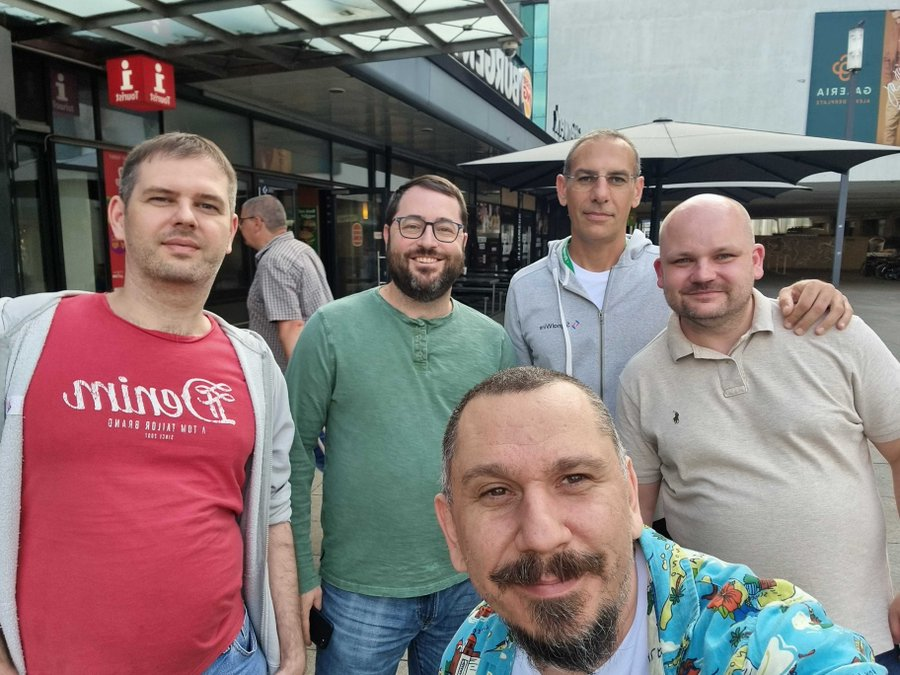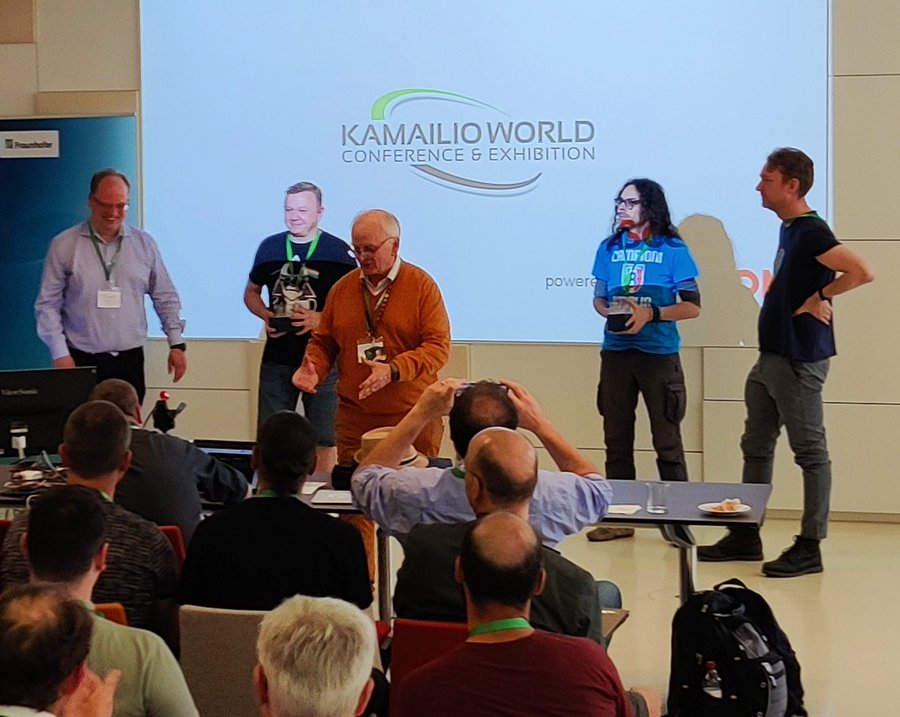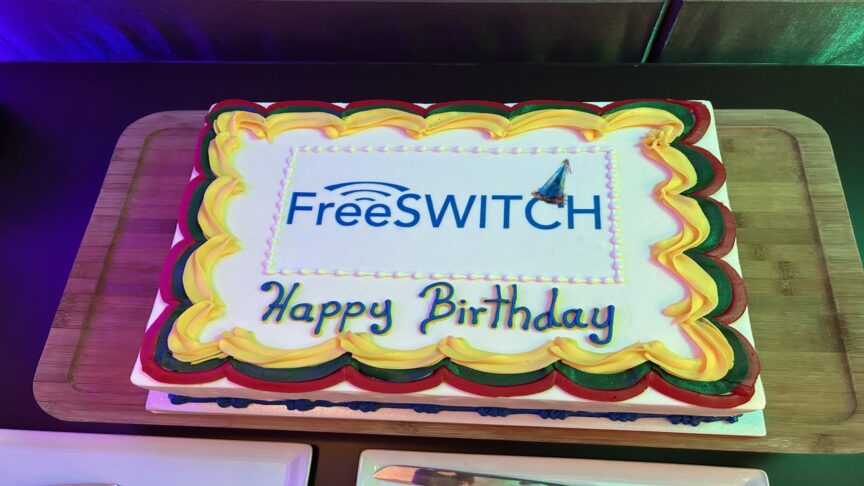From the archive: this event has passed. To meet the FreeSWITCH team in person, consider attending this year's ClueCon.
This Kamailio World 2023 wrap-up recaps the FreeSWITCH team’s trip to Berlin for the June 5–7 conference. It highlights what the team learned from talks and community discussions, including Kamailio’s role as a Session Initiation Protocol (SIP) edge component for security and load balancing, the wider open source real-time communications ecosystem (including FreeSWITCH, RTPEngine, RTPProxy, Janus, and Homer), and how SignalWire uses Kamailio at the edge of its infrastructure.
Kamailio World 2023
Last week, the FreeSWITCH team attended Kamailio World, an annual conference held in Berlin. After four years since the last in-person edition, it finally returned in 2023, on June 5th to 7th.
As the name suggests, this conference focuses around Kamailio, an open-source framework to build a wide range of SIP server functionalities, mainly related to SIP proxying, but extending much further than that.
Kamailio is part of an ecosystem of other open-source projects, and it's used by a large number of service providers around the world. As a multitude of service operators in the VoIP industry, mobile telephony, and WebRTC have a SIP infrastructure, Kamailio is popular as the edge component of such networks.
Being the first point of contact at application level, it's specialized in security aspects, flooding prevention, authentication, load distribution, etc. Kamailio handles signaling and APIs, and delegates media handling to other components like RTPEngine and RTPProxy directly, and FreeSWITCH or Janus SIP interface as first hops. The ecosystem also hosts applications specialized in RTC troubleshooting and monitoring, like Homer/Hepic from QXIP.
Being located in Berlin, this conference is easy to reach from all over Europe, but typically sees a good attendance from the US too (and possibly other regions). This makes their annual conference particularly useful to learn in person about the latest news, releases, collaborations and other related projects.
Among prominent speakers, there was obviously Daniel-Constantin Mierla, who is the main author and community leader for Kamailio (and a regular speaker and friend of ClueCon). He presented the state of Kamailio and what happened in the last year with major release 5.6, together with some deep dives into using hashtables, KEMI, and kamcli.
FreeSWITCH’s own Chris Rienzo, VP of Engineering at SignalWire, gave an update of the state of FreeSWITCH and community support, together with an overview of SignalWire APIs to build RTC systems. The SignalWire infrastructure uses Kamailio at the edge for security and load balancing.
Many other familiar faces of the FreeSWITCH community and regular ClueCon speakers were also presenters at Kamailio World this year. Alexandr Dubovikov from QXIP presented the latest improvement in RTC observability with a project based on eBPF, with a live demo.
Fred Posner, author of APIBAN, a collaborative way to protect VoIP providers from malicious traffic, provided an overview on how to integrate its APIs with Kamailio or use it directly.
Tim Panton of pi.pe gave a presentation about the use of WebRTC outside of the common scenario of a videoconference, demoing live a self-driving (yellow-line following) autonomous toy car. Autonomous driving vehicles are a special case of WebRTC usage where low latency is super important, while video quality still needs to be high enough to allow for environment recognition. Tim mentioned techniques involved by WebRTC elements to overcome variable network conditions during a session (with proper ftmp setting, the use of NACK when possible, and the drawbacks of PLI).
Max Sobolyev of Sippy Software gave a review of the history and more recent evolution of RTPProxy, an application that can be used to optimize RTP routing, and can be orchestrated by Kamailio. Some news were support for DTLS gatewaying and the possibility to move the full RTPProxy inside other applications's processes, e.g. make it running inside a Kamailio process.
Lorenzo Miniero of Meetecho, lead author of the Janus WebRTC gateway, introduced the topic of T.140 over WebRTC DataChannels, and the work to support it in Janus.
There were many other interesting presentations too, and they can be found from the livestreams on the Kamailio YouTube channel.
The conference featured Dangerous Demos, hosted by James Body - which are always a lot of fun, and will also be featured at ClueCon this year! And of course, there were lots of great networking opportunities for community building with other developers.
Kamailio is a great example of a community-based open source project. It's so reliable and its performance suitable for all sizes of infrastructure. Its SIP stack is of high quality and suitable to be the first point of contact for VoIP/WebRTC/IMS networks, leaving other key features like media handling, transcoding, conferencing, etc., to other components like FreeSWITCH, Janus and many others.
We hope some of you might consider attending next year!




